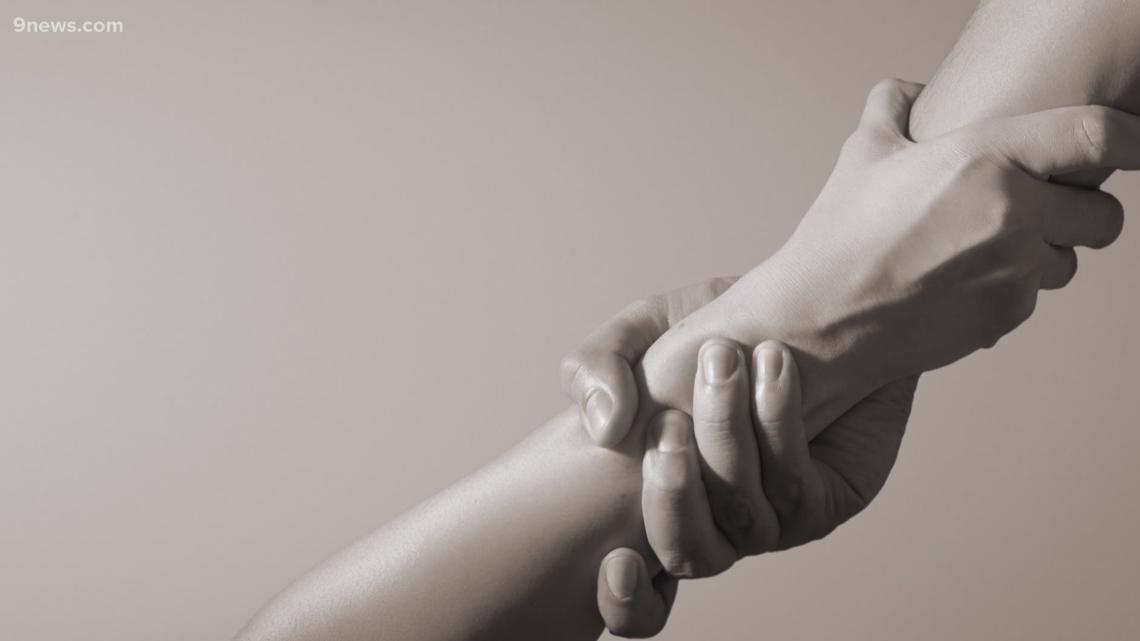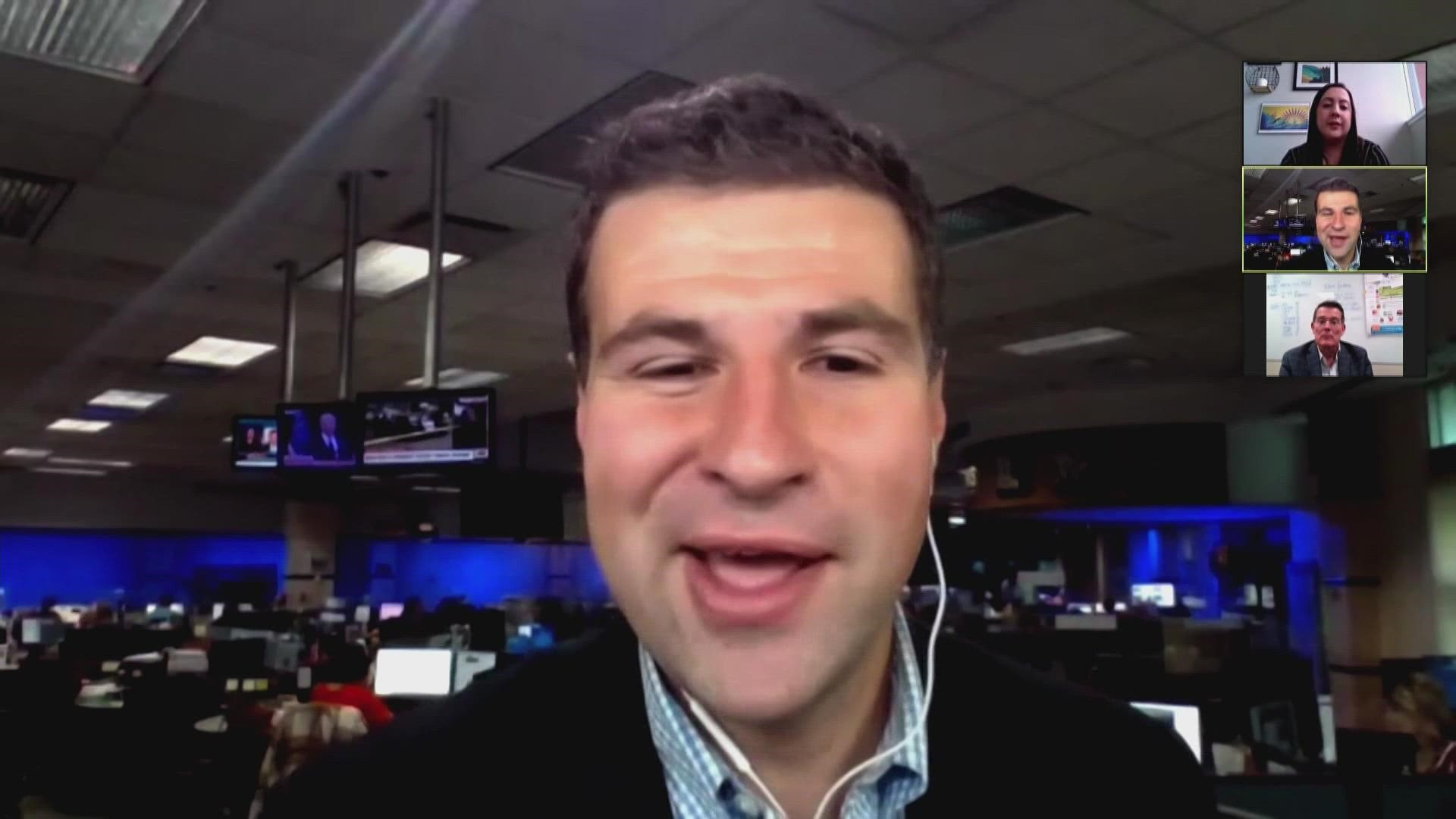DENVER — May is Mental Health Awareness Month, which is an opportunity not only to promote mental health but also help normalize it, advocate for it and reduce the stigma, according to a Denver organization.
“This month is a great month for all of us as it helps us raise awareness about mental health," said Ana Vizoso, vice president of health and welfare in Servicios de la Raza. "And we know that all human beings have mental health in the same way that we have physical health."
Vizoso joined 9NEWS for our weekly segment alongside our Watch host, Chris Bianchi, and Dr. Ricardo González-Fisher of Servicios de la Raza to discuss some of the things that people can do to improve their mental health.
Note from the editor: Answers have been edited for clarity.
It is known that mental health is receiving more attention after the pandemic, what "simple" things can we do to improve mental health?
"In the pandemic, all of us were impacted, our mental health was impacted, directly or indirectly," Vizoso said. "So it's very important that we pay attention to that feeling that we have in our body when something is not right and ask for help if necessary."
According to Vizoso, this question is often thought to have a complex answer, but there are simple things that people can do to improve their health condition, physically and mentally.
"Movement is very, very important for mental health," Vizoso said. "Whether it's going for a walk, walking the dog, dancing."
She said doing something physical is important because "it helps reduce stress and anxiety."
Other things she suggested to improve mental health were:
- Taking time for ourselves
- Taking the day off, if possible
- Cooking something we like
- Eating our favorite food
- Reading a book
- Listening to music
"We live in a society where we go 100% all the time, so be a little bit more present," Vizoso added.
Vizoso said that Servicios de Raza also uses the month of May as a launching point as they begin to focus on a free mental health festival that they host in July.
"July is also mental health awareness month for people of color, Latino people, African American people, indigenous people," Vizoso said.
How does mental health affect our physical health?
González-Fisher said he likes to take a holistic approach when discussing the concept of mental health.
“The definition of health is a state of physical, psychological, social, spiritual and occupational well-being," he said. "All of these things make up a person's ability to be happy."
Health implies being in that state of happiness, he added.
“If you're not emotionally well, you're not going to eat well, you're going to wake up tired, you're not going to sleep well," he said. "Your interpersonal relationships are going to be affected. And all this is going to generate a kind of snowball effect on your back."
According to González-Fisher, there are many diseases that are related to psychological states, depression or anxiety, and physical illnesses.
"It is important to treat the most sensitive, which is mental health, so that the physical issue works," he said.
Servicios De La Raza, the state's largest nonprofit serving Latinos, will continue to offer their COVID-19 vaccination clinic every Tuesday from 4 to 8 p.m. at 3131 W. 14th Ave.
On Thursday and Friday mornings, they will also hold mobile clinics at the Mexican consulate, 5350 Leetsdale Drive #100. from 9 a.m. to 1 p.m.
No appointments are necessary and no form of identification, Social Security number or medical insurance is required.
The organization's Behavioral Health Department offers a specialized clinic that provides culturally and linguistically responsive English and Spanish outpatient mental health and substance misuse services to underserved and uninsured populations.
They offer treatment services for youth ages 11-18, adults, couples and families who are uninsured, have Medicaid, Medicare, or CHP+, Victim’s Compensation recipients or self-pay/sliding scale.
People can call the behavioral health inquiry and support line at 720-410-7108 to connect with a member of the behavioral health team.


SUGGESTED VIDEOS: Latest from 9NEWS

